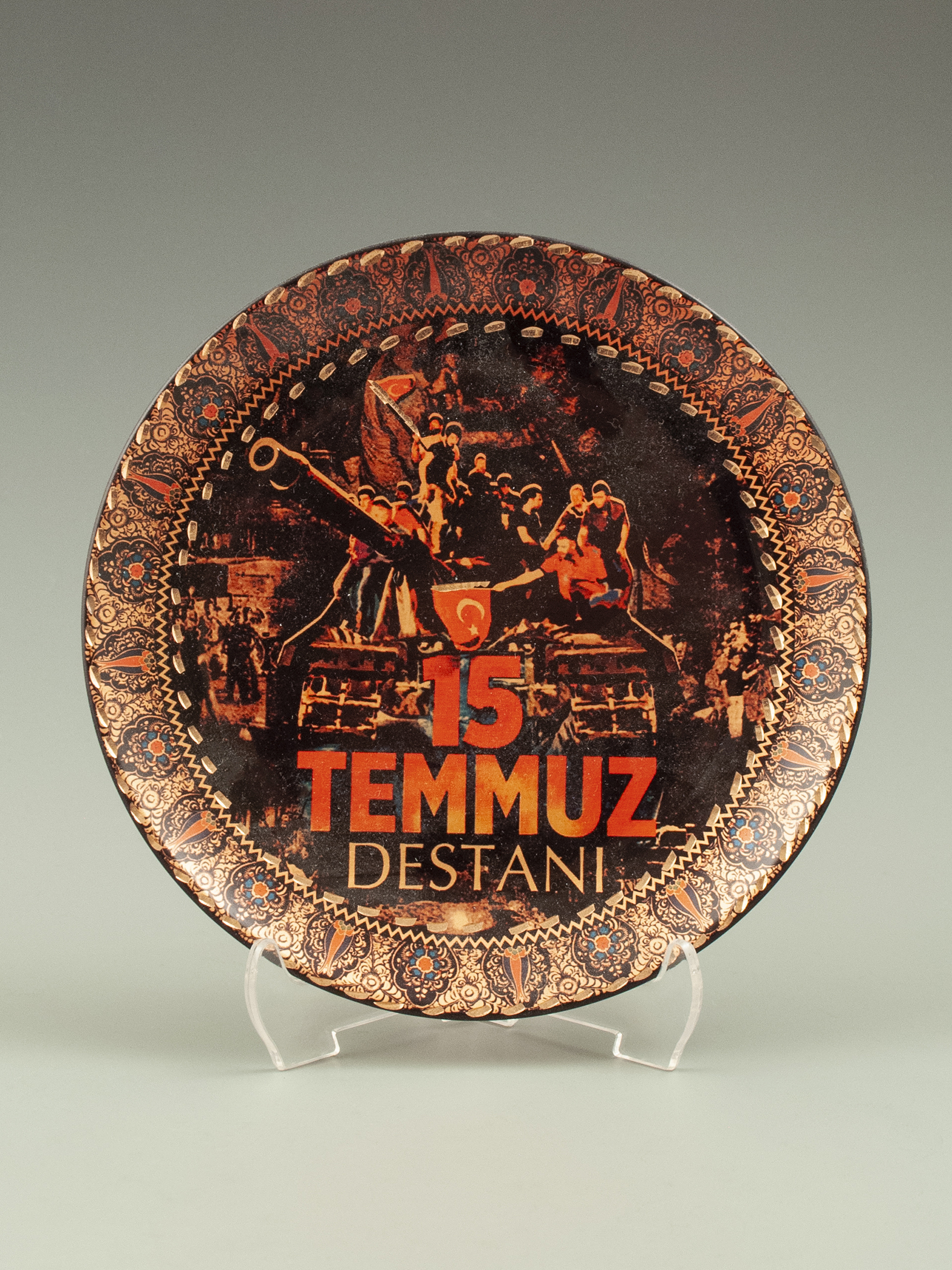Commemorative Plate
Türkiye, 2017

The three women laughing together at the café in Ankara were so beautiful that I never dreamed of approaching them. It was a hot day in the spring of 1994, and I was having an espresso while waiting for the “luxury” bus for Iğdir, near the Turkey/Iran border. My plan was to bribe my way through the check post, and travel across Iran to Pakistan. I had no idea how foolish an idea that was, but I’d find out soon enough.
Abruptly, one of the women—dark-haired, green-eyed, dreamily exotic—stood up and strolled, head held high with self-conscious boldness, to my table. “We would like you to join us,” she declared.
Her name was Fatima. She and her equally striking friends, Servin and Jalé, had guessed I was Milanese. They were disappointed by my true pedigree. But Fatima was reading In the House of the Spirits, and Jalé was halfway through The Stories of Eva Luna—and when I mentioned that I knew Isabel Allende, it was better than being Italian. I delayed my journey to the border.
The following day the three women, all in their late teens, took me to Anitkabir. This is the mausoleum of Kemal Ataturk, the nation’s beloved first president. Along with unifying Turkey, Ataturk was a progressive despot who had kept Turkey from being carved up by the Allied powers after World War I. He vowed to keep Turkey secular, and guaranteed equal rights for women.
Fatima carried a bottle of vodka in her purse; we nursed it as we toured the crypt and museum. When we left the memorial and sat on the broad marble steps, she and her two friends burst into tears.
“We need him,” Jalé sobbed. “We need him now.”
* * *
They had reason to be worried. Even in 1994, right-wing forces were rising in Turkey, threatening the nation’s progressive policies and constitutional rejection of shari’a, Islamic law.
Today, under President Recep Tayyip Erdoğan’s increasingly corrupt
and conservative government, many people fear that Turkey—long the land bridge between the East and West—might regress to the pious oppressions of the Ottoman Empire. But millions of Turks still revere Ataturk, and embrace secularism. On July 15th, 2016, there was a coup d’état, by the Turkish Army, against Erdoğan.
The uprising failed. But one year later, on the anniversary of the coup, millions of people took to the streets to recall the event and protest Erdoğan’s rule.
Did Jalé, Servin, and Fatima, now in their 40s, join in the demonstrations? I don’t know. I wasn’t there—but this plate, and my fearless friend Dwayne, were.
